What does SWOM do, and why is it important for you to monitor political developments?
At SWOM, the Foundation for Studying and Working on an Individual Basis, we guide vulnerable people towards the next step in their professional development. Whether it concerns physical challenges, such as visual impairments or being wheelchair-bound, or psychological obstacles, such as autism or ADHD, we are dedicated to helping our candidates find a suitable place in society based on their desires and possibilities. We achieve this through tailored, holistic support for our candidates.
Monitoring political developments is essential for SWOM because many of our candidates face structural barriers that limit their opportunities. Political decisions often have a direct or indirect impact on these ‘systemic hurdles.’ It is important for signals from the field to reach advocates, such as policymakers, politicians, municipalities, and the Dutch Employee Insurance Agency (UWV), to highlight the need for—and potential for—change. Tools like Polpo are invaluable for this purpose. They allow us to gain clear insights into the issues relevant to our work. We aim to change the system by connecting policymakers with the lived experiences of our target groups.
We also notice a growing demand for insights into what is happening in society, what the real issues are, and how citizens experience rules and laws. This helps to create a more accessible and inclusive labour market for the future.
How does political monitoring support your advocacy efforts?
Political monitoring enables us to track and compare relevant themes and legislation affecting our target group and respond proactively. Certain policy changes have a positive impact on the candidates we support, but we also see cases where laws worsen their situations in practice. It can sometimes feel overwhelming to keep track of everything, and this is where Polpo is incredibly helpful. It helps us identify which themes are being discussed politically and which ones are already on the agenda.
This creates a duality: we can observe what is happening in politics and determine whether these issues are reflected in practice. If not, we ask ourselves how we can ensure that practical experiences are brought back to the political agenda. For example, the UN Convention on the Rights of Persons with Disabilities commits the Netherlands to becoming an inclusive society, but these commitments also need to be implemented in practice.
This creates an interplay, as policymakers cannot possibly be aware of all practical issues, and we fill this role as an NGO.
What other topics are important for you to follow at the moment?
In addition to the UN Convention on the Rights of Persons with Disabilities, we also follow the Social Service Time (MDT) programme. We’ve established our SWOM Academy as part of this initiative.
Furthermore, we focus on many topics that affect the opportunities available to our target group, such as the Participation Act, the Jobs Agreement, and issues like disabilities in the workplace and the target group register. We monitor these topics and their implications closely.
Additionally, SWOM participates in various discussion tables, work agendas, and meetings where we provide input to policymakers. Themes such as wage value measurement, work capacity, and hybrid working are highly relevant in these contexts.
How does Polpo assist you in tracking political themes?
Our team scans Polpo daily to check for updates on themes relevant to us. Polpo is a true game-changer; it consolidates all relevant information onto one platform. From various perspectives and sources, we can efficiently gather and compare information.
This makes it much easier for us to respond quickly to political developments that impact our target group. We also use Polpo to investigate whether a particular theme has already been discussed, for example, during debates. This information can then be used in our work.
Are there specific features you use frequently, or specific ways you use it?
Polpo allows us to build dossiers on recurring themes, making it easier to manage and access information when needed. This saves us from endlessly searching for documents on the website of the Dutch Parliament, for instance. It’s a huge time-saver, as it allows us to quickly revisit information in our own compiled dossiers when necessary.

